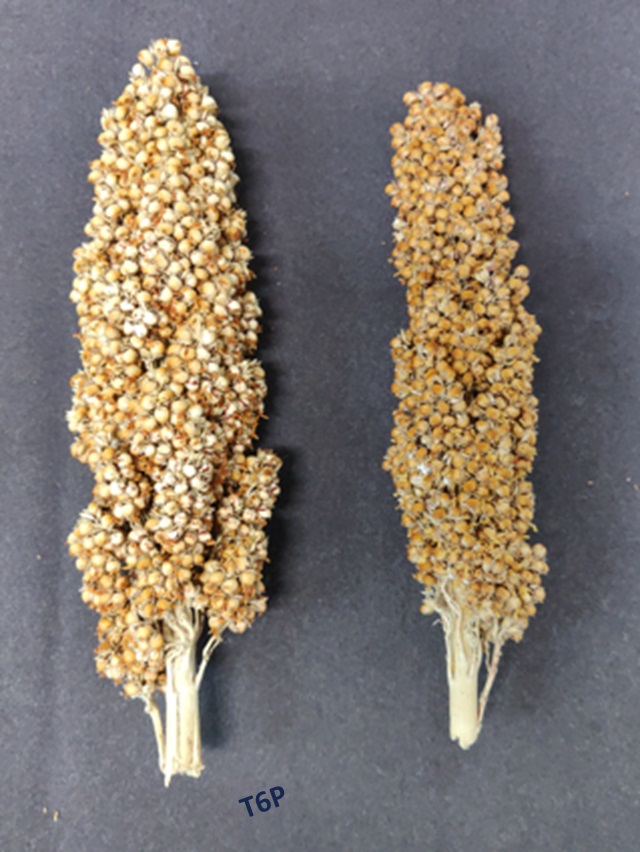The big picture: using wildflower strips for pest control
As more farmers seek to reduce the impact of climate change on crop yields, there is increasing attention being paid to biostimulants – inputs that stimulate natural plant or soil processes. Rothamsted and Oxford University spin-out SugaROx is developing a game-changing biostimulant with potential to deliver up to 20% yield gains in wheat, using a single spray application.
The approach is based on trehalose-6-phosphate (T6P), a natural plant sugar that diverts carbon in the crops towards grain filling. Last year, SugaROx raised £850k from Regenerate Ventures and the UK Innovation & Science Seed Fund to expand wheat trials in 5 markets. With the T6P mechanism being universal in plants, the company is also testing the technology on new crops. Initial results are promising; on drought-stressed sorghum, a yield benefit of 25% was observed.

Historically, the lack of regulatory frameworks led to a myriad of products being marketed as biostimulants with little or no evidence of efficacy or composition claims. “In the UK, where a new framework is not yet available, that is still the case”, says Rothamsted Dr Matthew Paul, one of the T6P technology co-inventors and venture co-founder.
“SugaROx is different as our T6P technology is based on 20 years of cutting-edge science. Results from our scientific collaboration with Professor Ben Davis at Oxford University were published in Nature in 2016”, says Dr Paul. “Our approach is attracting great interest. As our proprietary technology is patented and licensed exclusively to our spin-out, interested parties should reach out to SugaROx”.
SugaROx will develop new applications for the T6P technology and form partnerships with companies that have established distribution channels to sell the products to farmers in key markets.
For more information on the spin-out visit www.sugarox.co.uk or contact Business Development Director Bianca Forte via LinkedIn
Rothamsted Research is the longest-running agricultural research institute in the world. We work from gene to field with a proud history of ground-breaking
discoveries in areas as diverse as crop management, statistical interpretation and soil health. Our founders, in 1843, were the pioneers of modern
agriculture, and we are known for our imaginative science and our collaborative approach to developing innovative farm practice.
Through independent research, we make significant contributions to improving agri-food systems in the UK and internationally, with
economic impact estimated to exceed £3 bn in annual contribution to the UK economy. Our strength lies in our systems approach, which combines strategic research,
interdisciplinary teams and multiple partnerships.
Rothamsted is home to three unique National Bioscience Research Infrastructures which are open to researchers from all over the world:
The Long-Term Experiments,
Rothamsted Insect Survey and the
North Wyke Farm Platform.
We are strategically funded by the Biotechnology and Biological Sciences Research Council (BBSRC), with additional support from other national and
international funding streams, and from industry. We are also supported by the Lawes Agricultural Trust (LAT).
The Biotechnology and Biological Sciences Research Council is part of UK Research and Innovation, a non-departmental public body funded by a grant-in-aid
from the UK government.
BBSRC invests to push back the frontiers of biology and deliver a healthy, prosperous and sustainable future. Through our investments, we build and support a vibrant,
dynamic and inclusive community which delivers ground-breaking discoveries and develops bio-based solutions that contribute to tackling global challenges,
such as sustainable food production, climate change, and healthy ageing.
As part of UK Research and Innovation (UKRI), we not only play a pivotal role in fostering connections that enable the UK’s world-class research and innovation system
to flourish – we also have a responsibility to enable the creation of a research culture that is diverse, resilient, and engaged.
BBSRC proudly forges interdisciplinary collaborations where excellent bioscience has a fundamental role. We pioneer approaches that enhance the equality, diversity,
and inclusion of talent by investing in people, infrastructure, technologies, and partnerships on a global scale.
The Lawes Agricultural Trust, established in 1889 by Sir John Bennet Lawes, supports Rothamsted Research’s national and international agricultural science through the provision of land, facilities and funding. LAT, a charitable trust, owns the estates at Harpenden and Broom's Barn, including many of the buildings used by Rothamsted Research. LAT provides an annual research grant to the Director, accommodation for nearly 200 people, and support for fellowships for young scientists from developing countries. LAT also makes capital grants to help modernise facilities at Rothamsted, or invests in new buildings.